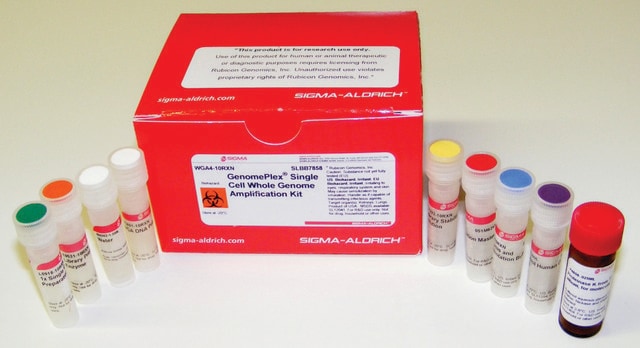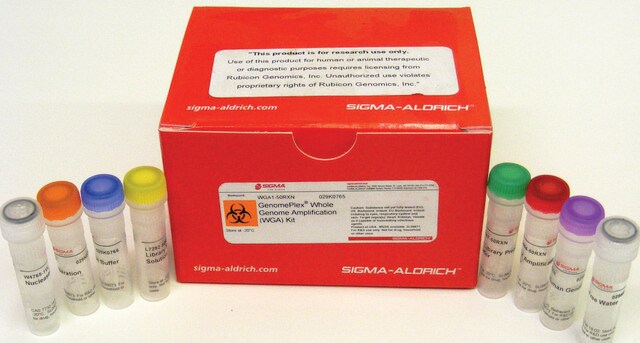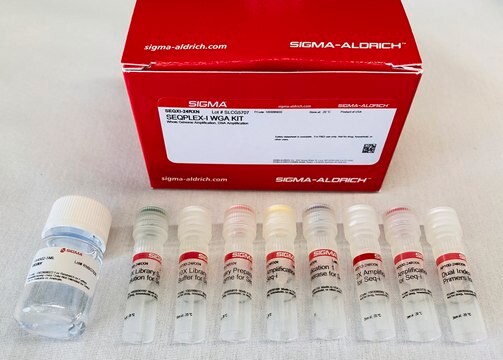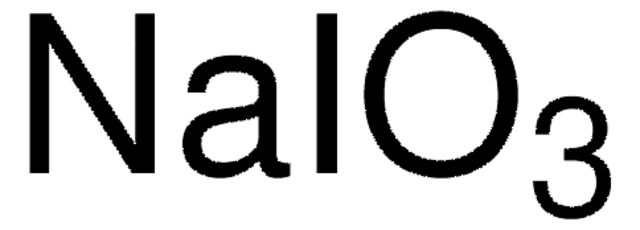WGA3
GenomePlex® WGA Reamplification Kit
Reamplification of WGA product with minimal bias
Synonym(s):
GenomePlex® whole genome amplification reamplification kit, Whole genome reamplification kit
About This Item
Recommended Products
General description
Application
Other Notes
Legal Information
Kit Components Only
- Deoxynucleotide Mix, 10 mM
Kit Components Also Available Separately
- D7295Deoxynucleotide Mix, 10 mM, Molecular Biology Reagent .2 mLSDS
related product
Signal Word
Danger
Hazard Statements
Precautionary Statements
Hazard Classifications
Resp. Sens. 1
Storage Class Code
12 - Non Combustible Liquids
Flash Point(F)
Not applicable
Flash Point(C)
Not applicable
Certificates of Analysis (COA)
Search for Certificates of Analysis (COA) by entering the products Lot/Batch Number. Lot and Batch Numbers can be found on a product’s label following the words ‘Lot’ or ‘Batch’.
Already Own This Product?
Find documentation for the products that you have recently purchased in the Document Library.
Articles
The ultimate biological unit lies within a single cell. Many biological disciplines have taken aim to elucidate the causes of cellular differentiation at this level.
Epigenetic modifications are thought to occur through two key interconnected processes—DNA methylation and the covalent modification of histones.
Protocols
GenomePlex® is a Whole Genome Amplification (WGA) method that allows the researcher to generate a representative amplification of genomic DNA
GenomePlex is a Whole Genome Amplification (WGA) method that allows the researcher to generate a representative, 500-fold amplification of genomic DNA
This protocol provides a simple and convenient method to isolate, amplify, and purify genomic DNA from buccal swabs. Buccal swabs are a convenient method of acquiring a DNA sample.
GenomePlex® Whole Genome Amplification has been used to amplify genomic DNA from soybean, corn, tomato, purple coneflower, and ginseng.
Related Content
GenomePlex is a Whole Genome Amplification (WGA) method that allows the researcher to generate a representative, 500-fold amplification of genomic DNA
Our team of scientists has experience in all areas of research including Life Science, Material Science, Chemical Synthesis, Chromatography, Analytical and many others.
Contact Technical Service









